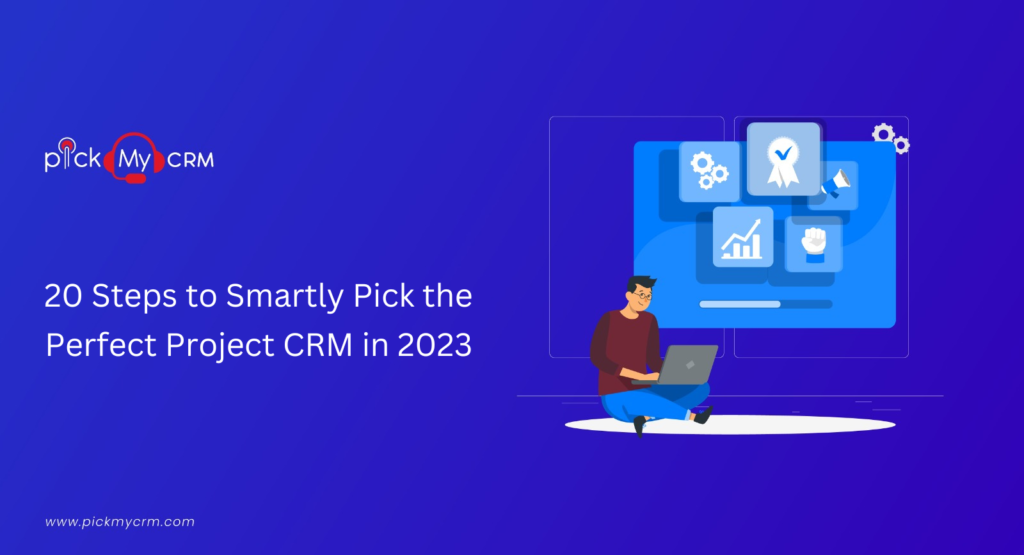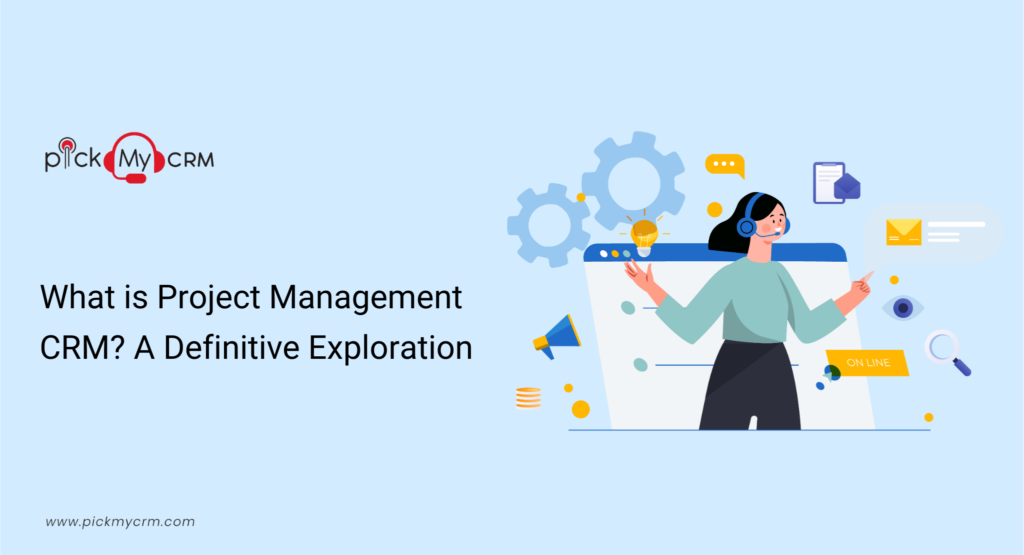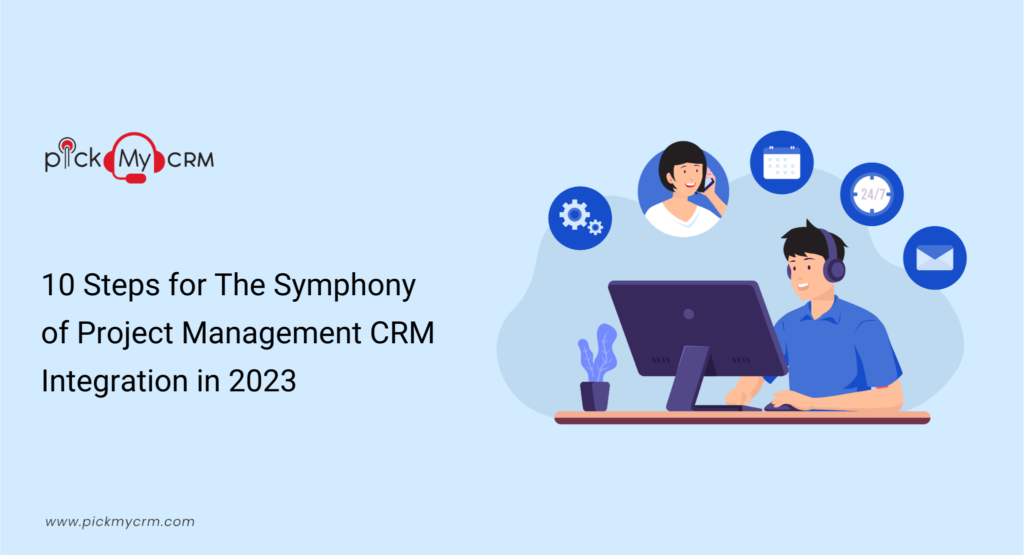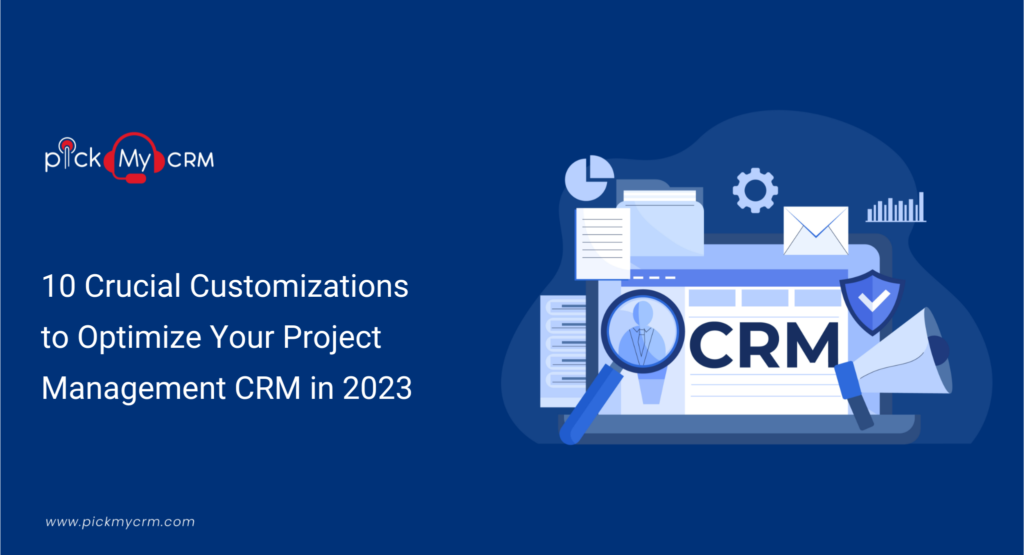20 Steps to Smartly Pick the Perfect Project CRM in 2023
Why Choose a Project Management CRM Over Standard CRMs?
Understanding the advantages of a dedicated Project Management CRM will help you make an informed decision. These specialized CRMs offer a tailored approach to project handling, enabling better task delegation, real-time progress tracking, and improved team communication.20 Steps to Choose the Ideal Project Management CRM
Choosing the right Project Management CRM can impact the success of your projects and overall business efficiency. To help you make an informed decision, follow these essential steps,Define Your Project Management Needs
Start by conducting an in-depth analysis of your organization's Project Management needs. Consider the size and complexity of your projects, the number of teams involved, and the specific features required to streamline your workflows.Choose Top Contenders
Narrow down your options to a shortlist of top contenders based on the reviews and their suitability for your organization's needs. Consider factors like integration capabilities, scalability, and user-friendliness during this selection process.Involve Key Stakeholders
Engage critical stakeholders like project managers, team leads, and executives in the decision-making. Their insights and feedback are crucial in identifying essential features and ensuring buy-in from the Start.Research and Gather Information & Online Reviews
Explore the market for Project Management CRMs and gather information about various software options. Read online reviews, customer testimonials, and expert analyses to gain insights into each CRM's strengths and weaknesses. Begin your search for the best Project Management CRMs by reading online reviews and testimonials from other users. These insights can provide valuable information about the CRM's performance, usability, and customer support.Set a Budget
Determine a realistic budget for the CRM acquisition, implementation, training, and ongoing maintenance. Consider the long-term costs to avoid unexpected expenses later on.Assess Scalability
As an Organization grows, your project management needs will evolve. Choose a CRM that can scale your business and accommodate an Increasing number of Projects, Users, and Data volume.Evaluate Customization Options
Check the CRM's customization capabilities to ensure it can adapt to your organization's unique workflows and terminology. Customization is essential for seamless integration with your existing processes.Integration Capabilities
Take into account the software and tools currently utilized by your teams, including task management, communication, and collaboration platforms. Choose a CRM that offers smooth integration with these tools to avoid data silos and enhance productivity.User-friendly interface and Mobile Accessibility
A user-friendly interface is vital for user adoption and efficiency. Request a demo or trial access to test the CRM's usability and intuitiveness for different user roles. In today's remote work landscape, mobile accessibility is indispensable. Check whether the CRM provides mobile apps or responsive web interfaces for easy project management on smartphones and tablets.Data Security and Compliance
Protecting sensitive project data is of utmost importance. Ensure the CRM offers robust data security measures, such as encryption and user access controls, to safeguard confidential information. Also, verify that the CRM complies with relevant data protection regulations in your region.Consider Cloud vs. On-Premises
Decide whether you prefer a cloud-based CRM hosted by the vendor or an on-premises solution hosted on your servers. Cloud-based options offer flexibility, automatic updates, and scalability, while on-premises solutions provide more control over data.Check Reporting and Analytics and Review Customer Support
Efficient project management relies on data-driven insights. Evaluate the CRM's reporting and analytics capabilities to determine whether it provides real-time project tracking, performance metrics, and customizable reports. Support is crucial when using a new CRM. Inquire about the level of customer support Provided by the CRM vendor, including response times, support channels, and availability of resources like knowledge bases and forums.Test Usability and Functionality
Request demos or free trials from shortlisted CRM providers to test how the CRM functions in real-world scenarios. Involve a cross-functional team in the testing process to get diverse perspectives.Compare Pricing Models
Analyze the pricing plans offered by different CRM vendors. Some may offer a subscription-based model, while others may have one-time licensing fees. Consider additional costs, such as training and support, when comparing prices.Seek References
Ask the CRM vendors for references from Existing clients having similar project management needs. Reach out to these references to Gain firsthand feedback about their experiences with the CRM.Prioritize Features
Prioritize the features provided by each CRM according to their relevance to your project management needs. Identify must-have features and compare how well each CRM meets these priorities. It will help you make an informed decision that aligns with your organization's goals and workflows.Evaluate Vendor Reputation
Research the reputation of the CRM vendor in the market. Look for customer satisfaction ratings, industry recognition, and how long they have been in the business.Consider Training and Onboarding
Inquire about the training resources and onboarding support Provided by the vendor. A smooth transition to the new CRM is essential for successful adoption.Read the Fine Print
Thoroughly Review the CRM's terms of service and contract before committing. Pay attention to clauses related to data ownership, cancellation policies, and any hidden fees.Make an Informed Decision
Based on all the Gathered information and feedback, prioritize the features that align with your organization's needs and goals. Consult with key stakeholders to make a well-informed decision on the Best Project Management CRM for the team. Remember that finding the right CRM is an iterative process. Take time to evaluate your options, involve your team, and choose a solution that will Seamlessly integrate into your project management workflows while driving productivity and collaboration.How to Involve Your Team in the CRM Selection Process
- Form a diverse cross-functional team representing various departments.
- Collect feedback via surveys, interviews, workshops, and focus groups.
- Provide team members with access to trial versions or test accounts.
- Consider user experience and ease of navigation for team members.
- Address concerns and questions to build confidence in decision-making.
- Involve users from different departments in live demos or presentations.
- Collaborate on decision-making, analyzing pros and cons collectively.
- Offer comprehensive training and ongoing support after CRM implementation.
When selecting a CRM system, what pitfalls should you steer clear of?
When choosing a CRM system, it's essential to avoid common mistakes that can impact its effectiveness. Here are points to Choose and ensure a successful Project Management CRM selection process.- Involve CRM Users: Don't solely rely on executives; include sales teams and customer-facing employees to gather insights into their needs and required features for seamless operations.
- Identify Business Needs: Before Making a Decision, thoroughly examine your organization's specific needs and goals to ensure the chosen CRM aligns with your expectations.
- Have a Sales Strategy: Implementing a CRM without a pre-existing sales strategy can hinder its non-effective in customer acquisition and retention.
- Focus on Fit, Not Price: Price doesn't always guarantee the best fit. Evaluate how well a CRM's features cater to your needs rather than solely considering the price.




